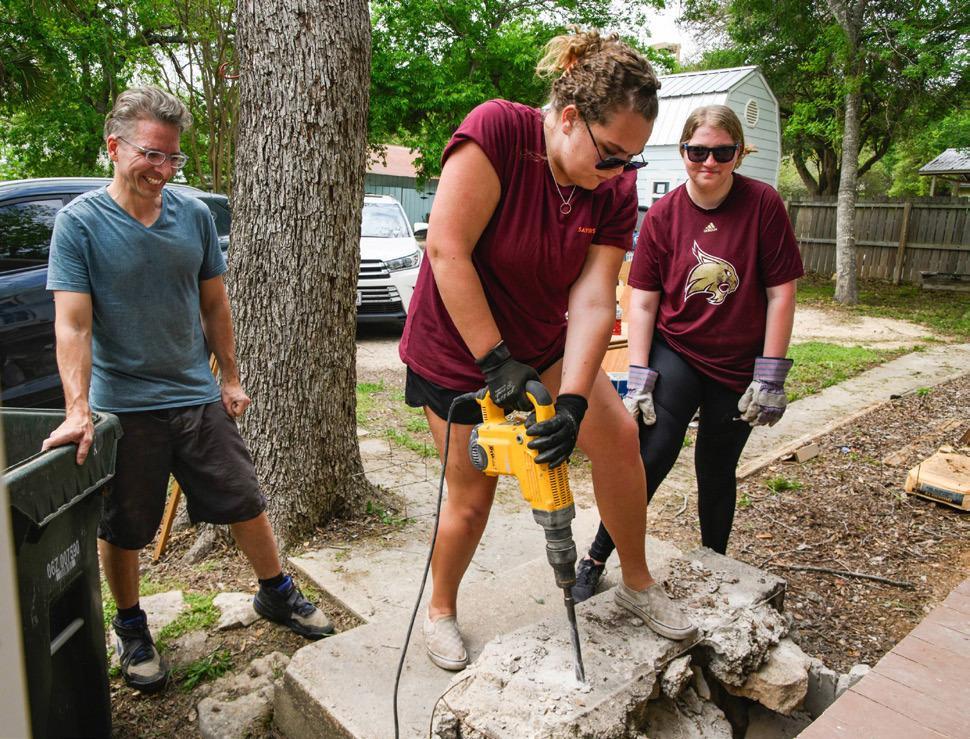
TXST faculty and students volunteering during Bobcat Day.
Photo courtesy of Texas State University
NIH-funded study investigates cardiovascular benefits of volunteering
The National Institutes of Health’s National Heart, Lung and Blood Institute has awarded Texas State University a grant to study the cardiovascular benefits of volunteering activity in later life.
This four-year, $1 million grant will support the project “Volunteering, polygenic risk, and cardiovascular biomarkers in multiple ancestry.” Seoyoun Kim, Ph.D., an associate professor in the Department of Sociology, will serve as the principal investigator. This innovative project will examine whether frequent and sustained volunteering affects changes in cardiovascular biomarkers, while also accounting for genetic risk factors.
More than 50% of adults over the age of 50 in the U.S. report at least one cardiovascular risk, such as hypertension, high cholesterol, obesity and chronic inflammation. A deeper understanding of how volunteering benefits cardiovascular health could potentially offer new ways to manage risk in vulnerable populations.
There is a growing body of evidence that volunteering has a beneficial impact on the cardiovascular health of volunteers. Despite decades of research indicating that frequent volunteers show better cardiovascular disease biomarkers, it is not known whether frequent and sustained volunteering has a comparable effect across various population subgroups. Also, genetic susceptibility to cardiovascular disease biomarkers has never been studied in the context of volunteering. This highlights a critical need for understanding the pathways by which genetic, social and behavioral factors affect cardiovascular health in older adults.
Cal Halvorsen, Ph.D., an assistant professor in the School of Social Work at Boston College, and Koichiro Shiba, Ph.D., an assistant professor in the School of Public Health at Boston University, will serve as Co-PIs.
For more information, visit the NIH website.











